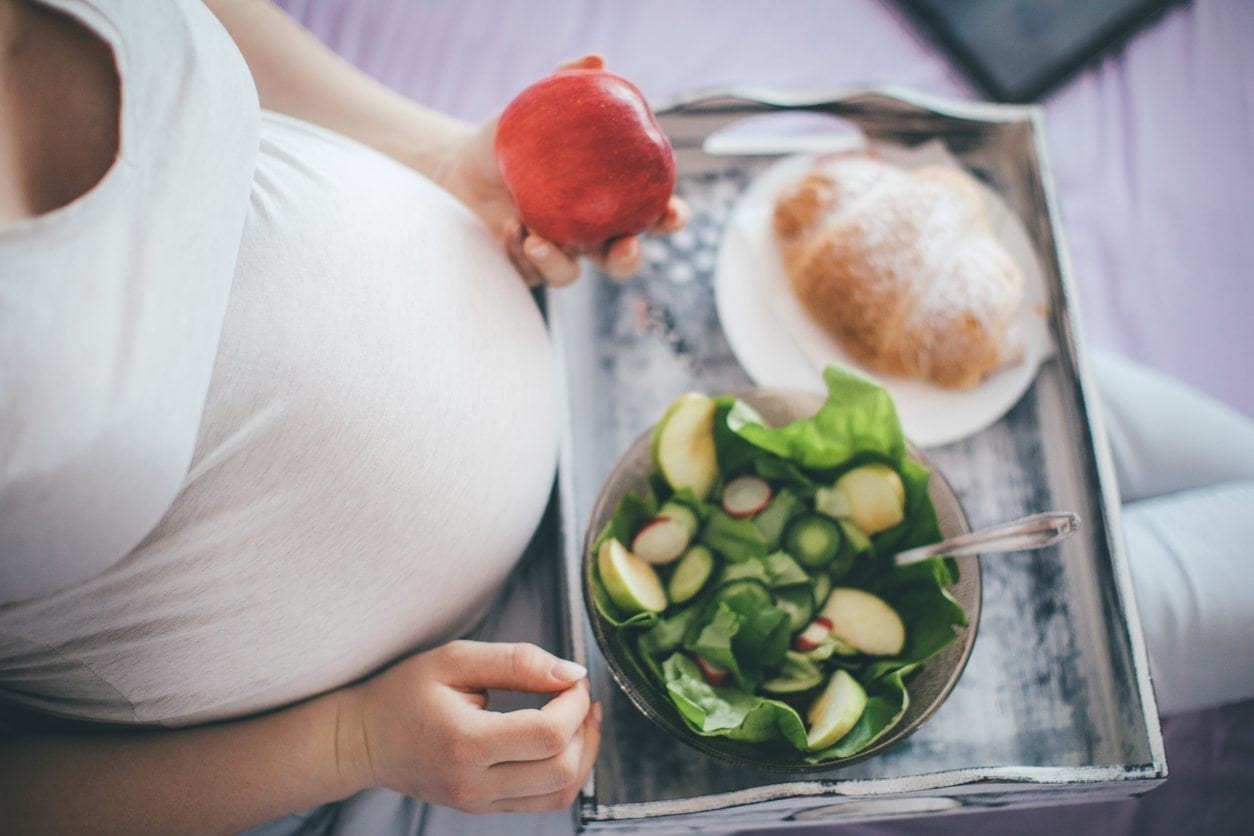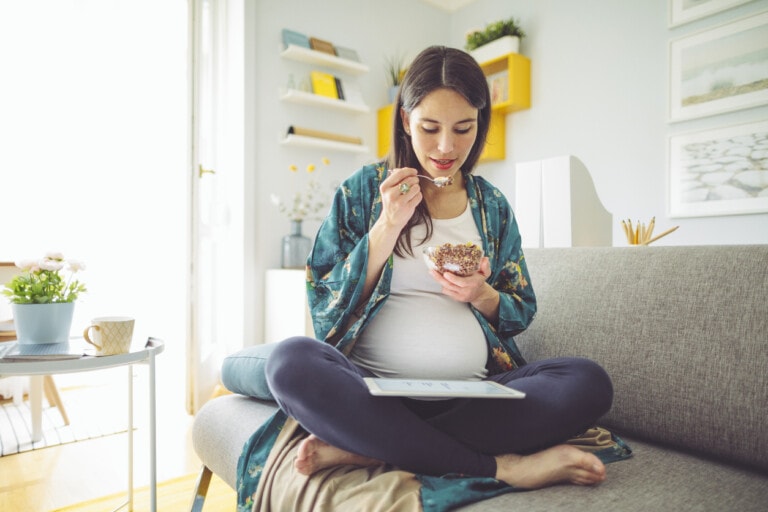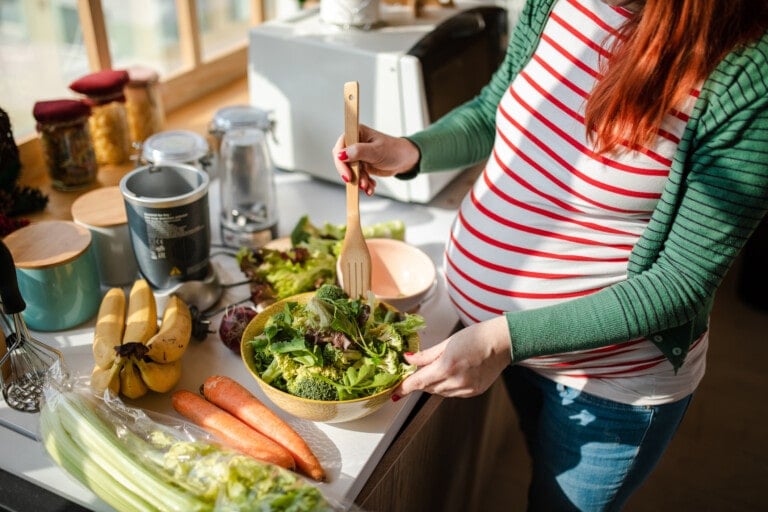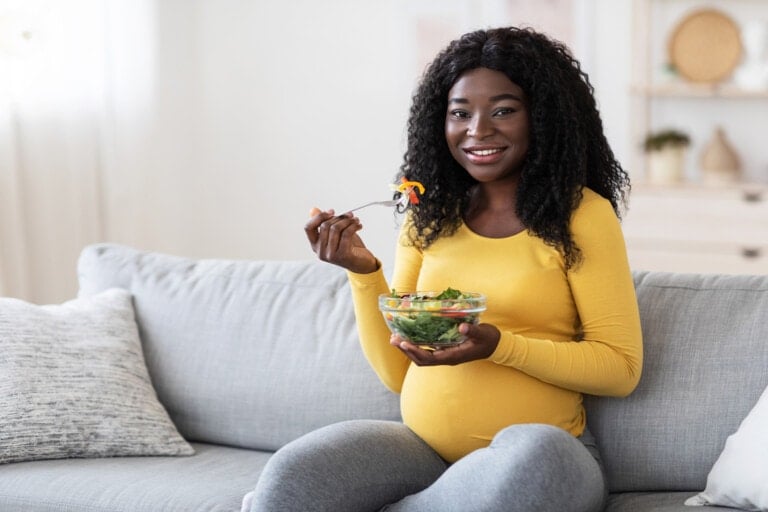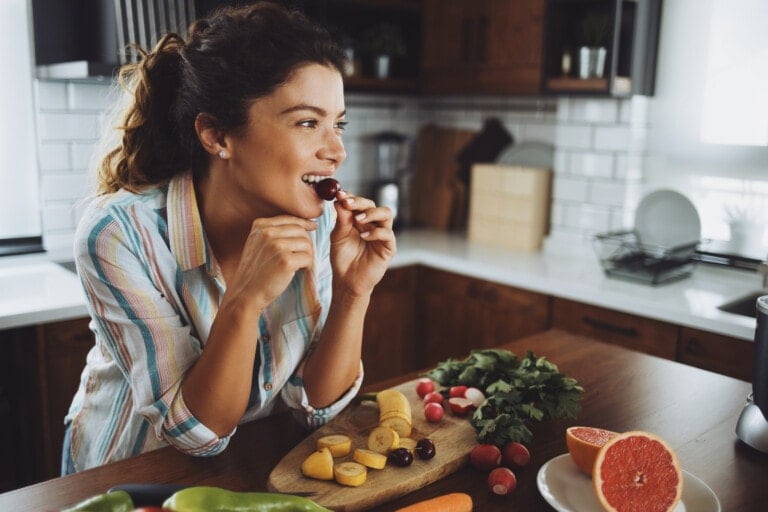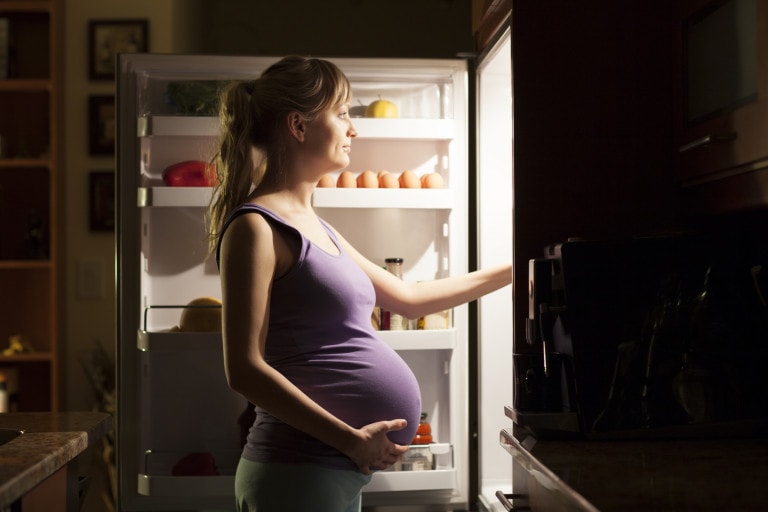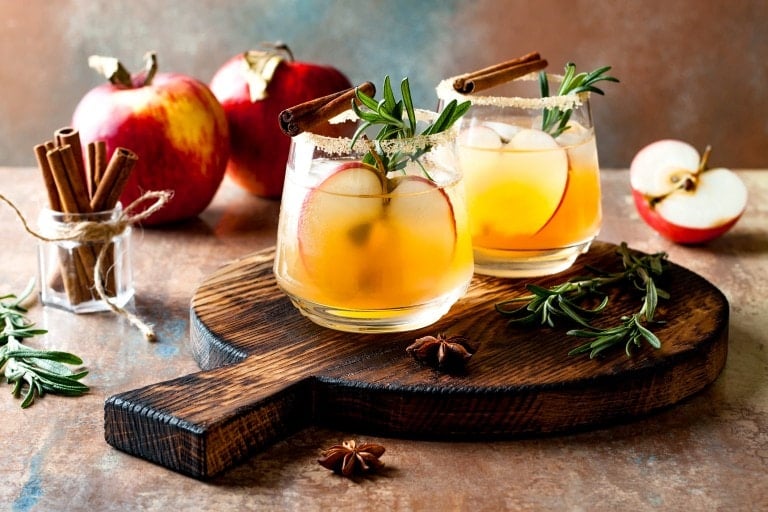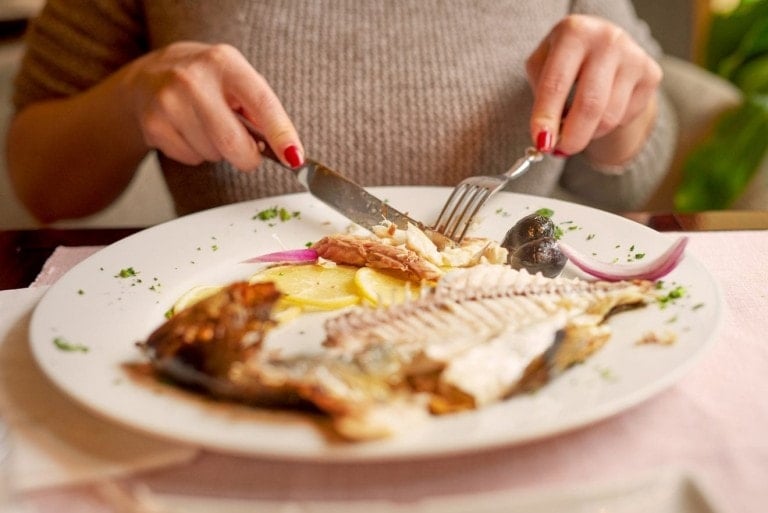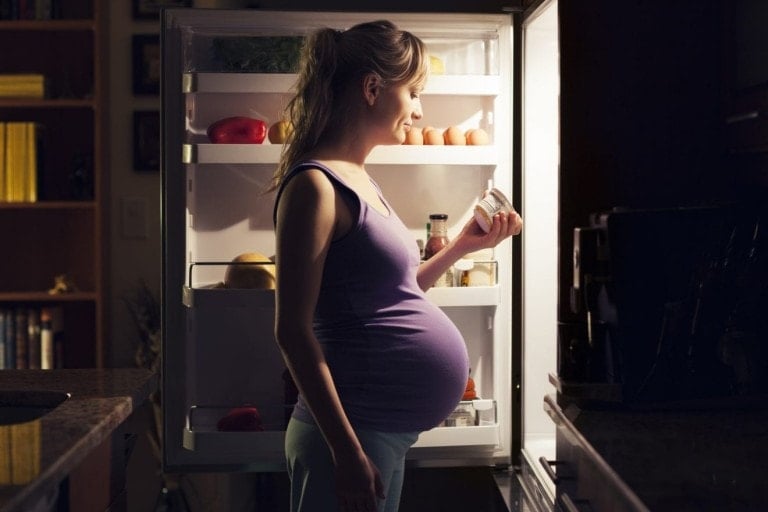Pregnancy is often a time that women start thinking more about what they are eating. Even though pregnant women are notorious for having food cravings, many people use it as an opportunity to eat healthier foods. After all, you are growing a baby! Nutrients are the building blocks that support the cell-by-cell growth of a whole other person — from the heart, lungs, and skin to the bones, spine, and brain!
Your body will try to take what it needs from mom to build a baby, but it can’t give what it doesn’t have, and no one wants their own bones being broken down to help give the baby what it needs. You may also be left feeling crummy if the baby has to dive deep into your stores to find what it needs to thrive. This is where a nutrient-dense diet (and a solid prenatal vitamin to fill in the gaps) is important to provide the vitamins and minerals and support both mom and baby.
5 Power Foods to Eat While Pregnant
1. Fish
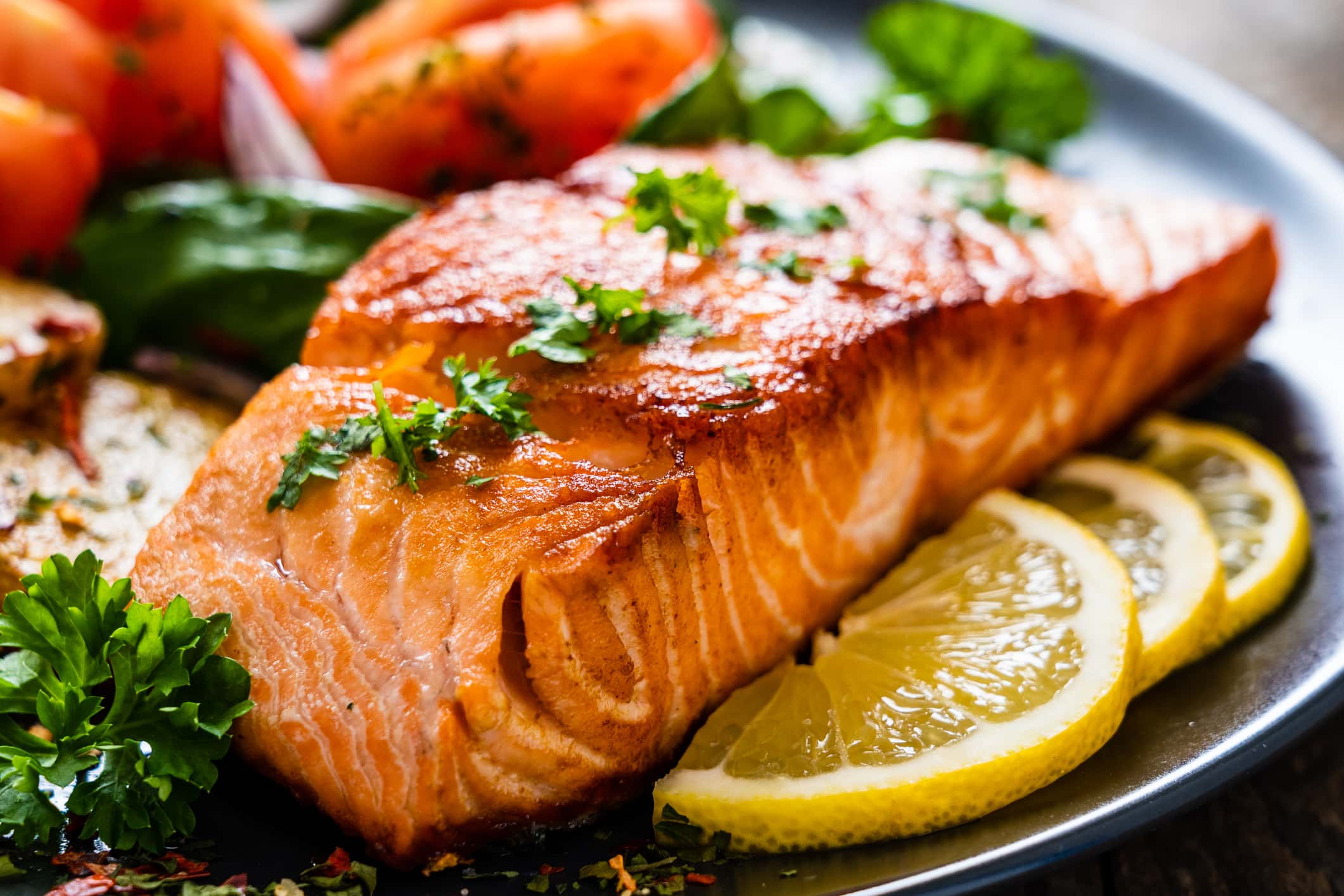
Yes! Fish is safe during pregnancy. Mercury exposure is a common reason women avoid fish or seafood when pregnant, but eliminating seafood altogether can cause more harm than good. Research shows that consuming more than 12 ounces of seafood per week is linked with improved IQ and communication skills in children, even though mercury consumption was higher.1 Seafood is also high in selenium, which binds to mercury and prevents toxic effects. Additionally, fatty fish like salmon, sardines, and herring are high in DHA, which supports cognitive development in babies. Seafood is also a great source of iodine which is important for thyroid function and brain development. This is a big deal as iodine deficiency is thought to be the leading cause of preventable intellectual disability.2
Tips for eating seafood when pregnant:
- Avoid high mercury seafood like shark, swordfish, king mackerel, and tilefish.
- Aim for at least 12 ounces of a variety of fish and shellfish that are lower in mercury like salmon, sardines, pollock, flounders, cod, tilapia, shrimp, oysters, clams, scallops, and crab. Canned light tuna is lower in mercury, whereas albacore tuna should be limited to less than 6 oz a week.
- Avoid raw shellfish.
- Choose wild-caught fish as often as possible. Farmed fish is often contaminated with a variety of chemicals and lower in nutrients like DHA.
2. Eggs
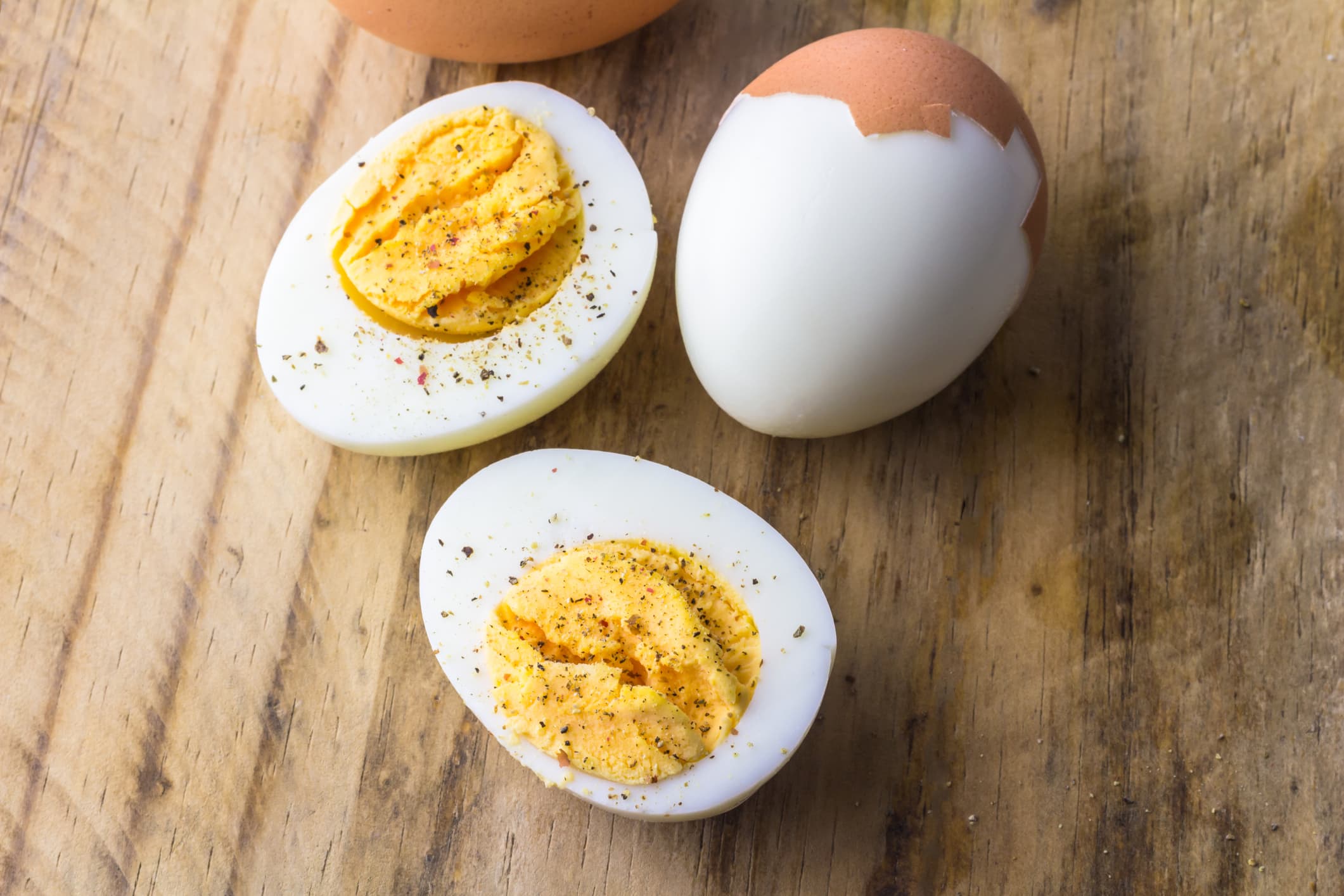
Eggs are full of nutrients that tend to be lacking during pregnancy and are an easy source of protein. Protein is helpful in early pregnancy for stabilizing your blood sugar and decreasing morning sickness. Eggs are high in a nutrient called choline, which is essential for brain development and preventing neural tube defects. Eggs are also a rich source of DHA, an omega-3 fat that is also important for brain development in the baby. Pasture-raised eggs have higher amounts of vitamin A, vitamin E, omega-3s, and vitamin D compared to eggs from commercially raised chickens.3
3. Leafy Greens
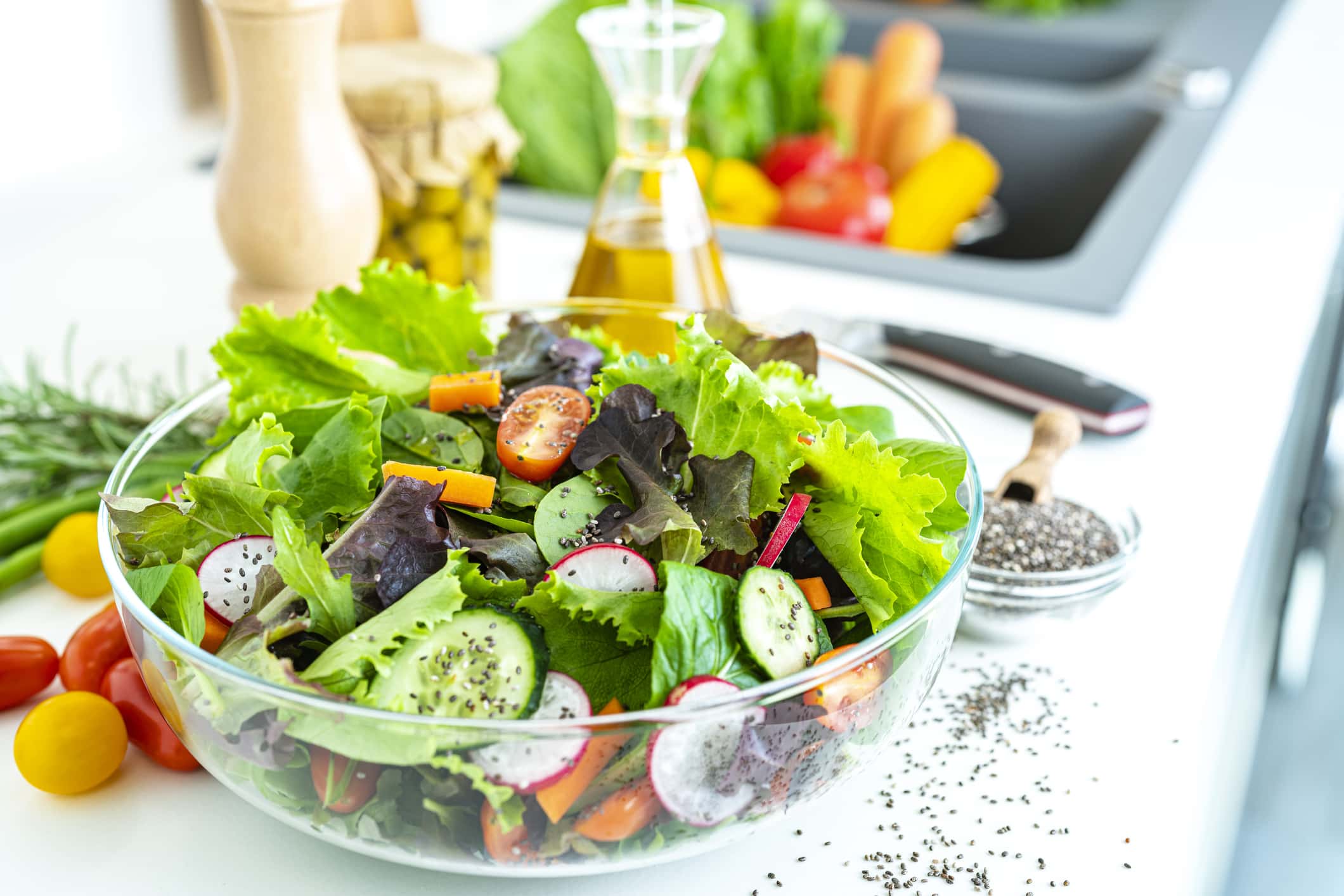
It is undeniable that green vegetables are one of the most beneficial foods as they are filled with essential vitamins, minerals, and antioxidants that support health and pregnancy. Cooked spinach and other green vegetables are good sources of folate and vitamin C. Folate is important for neural tube development, while vitamin C supports collagen production for growing tissues. Aim to eat greens with fat to support the absorption of the fat-soluble vitamins in them.4
4. Full-Fat Dairy
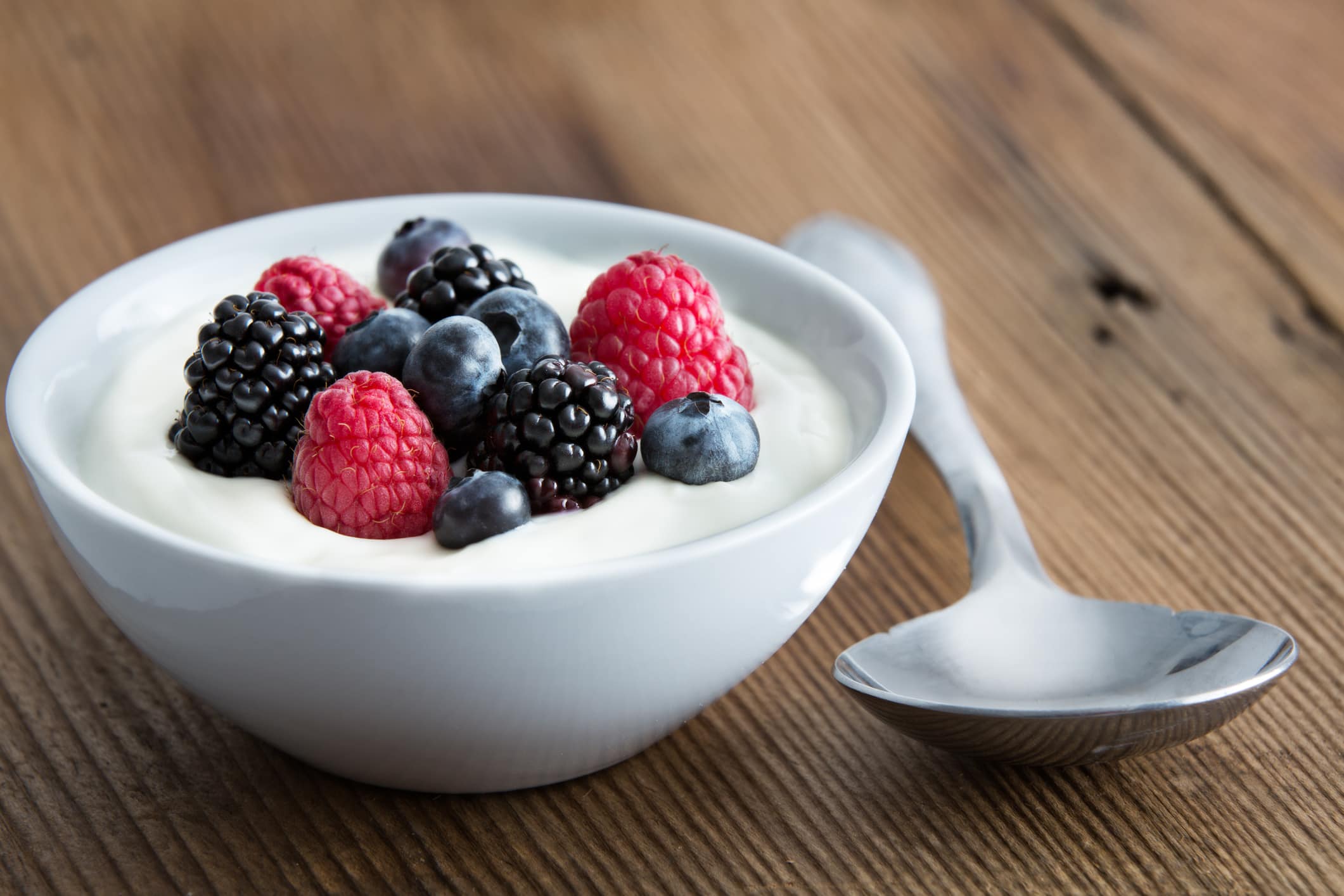
Dairy is much more than a good source of calcium! If you can tolerate dairy, it can be a great source of protein, iodine, fat-soluble vitamins, and probiotics. Choosing full fat is important to support the absorption of the fat-soluble vitamins while keeping you fuller longer and stabilizing your blood sugar, much like protein. It’s a win all around for cutting down on the pregnancy queasies. If you have trouble with lactose, try full-fat greek yogurt or aged cheese, as they are much lower in lactose than other dairy products. Some women noticed they could tolerate dairy better during pregnancy!
5. Meat on the Bone
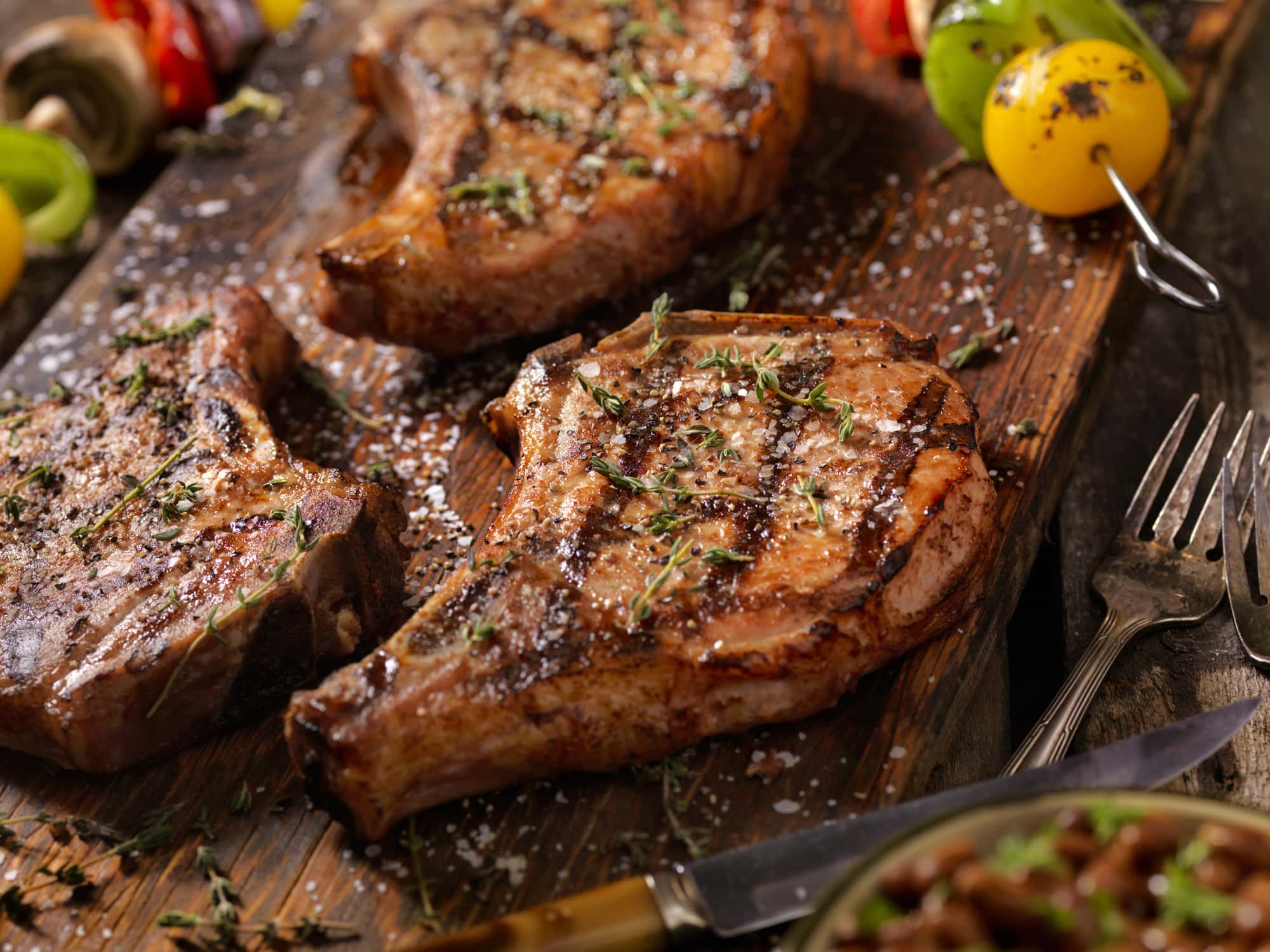
Meat is a great source of complete protein and nutrients like B-vitamins, fat-soluble vitamins, and minerals, including iron and zinc. Animal protein has forms of nutrients like iron and zinc that are easier to absorb than those found in plants. Your blood volume doubles during pregnancy, making it more likely that you become anemic by 28 weeks gestation.6 Your iron intake during pregnancy is important for decreasing complications and supporting babies’ brain development. Slow cooking meat on the bone increases the amino acid glycine that is needed in higher amounts during pregnancy due to the production of DNA, bones, tissues, organs, and skin, as well as your growing body. Glycine is very low in lean meats and vegetarian protein sources.5
These are the top foods to eat while pregnant. Try introducing one of these power foods into every one of your snacks and meals each day. You’ll be feeling great knowing you’re nourishing both your and baby’s body.













